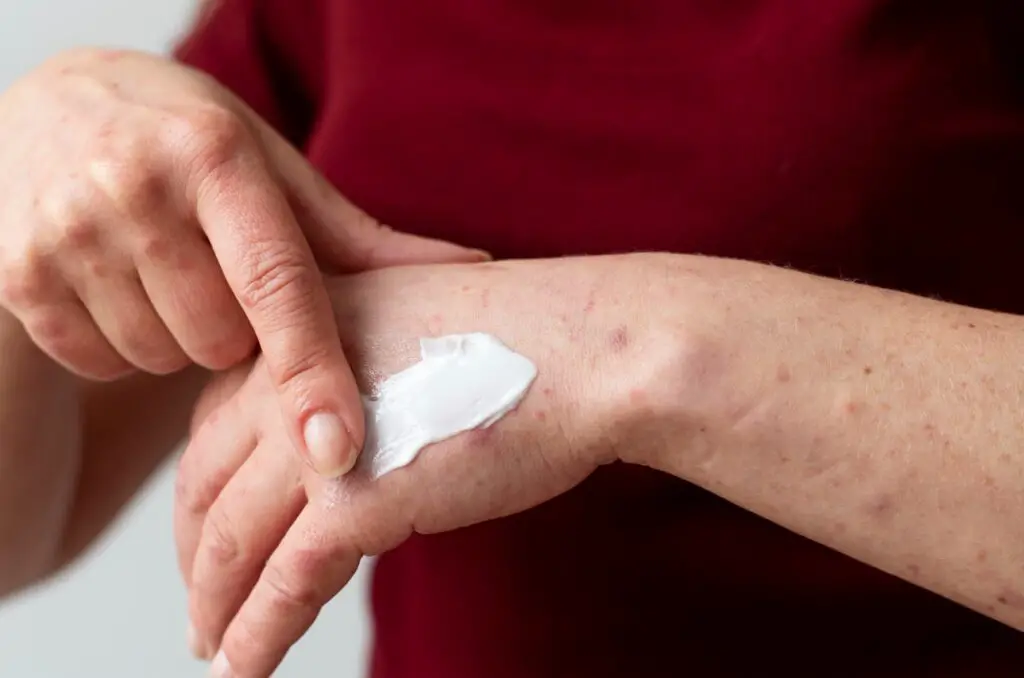9 Vitamin Deficiency Signs You Should Never Ignore – Are You Missing These Red Flags?

Vitamin deficiencies can sneak up on us without warning, but our bodies are often pretty good at signaling when something is off. While a balanced diet can generally cover our nutritional needs, factors like stress, poor eating habits, and lifestyle changes can lead to deficiencies that affect our overall well-being. Knowing the signs of vitamin deficiencies can help you take action before they cause long-term damage. In this blog, we’ll explore nine important vitamin deficiency signs you should never ignore, and why they may be telling you it’s time to make some changes to your diet or lifestyle.
1. Unexplained Fatigue – A Sign of Vitamin D or B12 Deficiency

If you constantly feel tired and sluggish, even after getting a full night’s sleep, it could be a sign of a vitamin D or B12 deficiency. Vitamin D is crucial for energy production, and low levels can lead to chronic fatigue. Similarly, vitamin B12 helps in the production of red blood cells, which carry oxygen throughout the body. A deficiency in B12 can result in anemia, leading to extreme tiredness. If you’re struggling with fatigue that doesn’t improve with rest, consider checking your vitamin D and B12 levels to see if they’re at the root of the issue. These vitamins are vital to your energy levels, and keeping them in balance can make a significant difference in your day-to-day life.
2. Frequent Cramps or Muscle Weakness – Could Be Low Magnesium or Potassium

Muscle cramps or unexplained weakness can be a sign of a magnesium or potassium deficiency. Magnesium plays an essential role in muscle function, and when levels are low, it can lead to muscle spasms, cramps, and weakness. Similarly, potassium is important for muscle and nerve function, and low potassium levels can lead to muscle cramps, fatigue, and irregular heartbeats. If you’re frequently experiencing muscle cramps or weakness, it’s worth checking your magnesium and potassium intake to see if they’re causing the problem. These minerals are crucial for your body’s proper function, and ensuring you get enough can help keep your muscles strong and prevent discomfort.
3. Dry Skin, Hair, or Nails – Could Point to a Lack of Essential Fatty Acids and Vitamin E

Dry skin, brittle hair, and weak nails can be signs of essential fatty acid or vitamin E deficiency. Vitamin E is a powerful antioxidant that helps maintain the health of skin, hair, and nails. Without it, you may notice your skin becoming dry, flaky, and irritated. Essential fatty acids like omega-3s are also vital for maintaining healthy skin and hair, and their deficiency can cause skin problems and dry, brittle hair. If your skin or hair is constantly dry, you may need to increase your intake of vitamin E and omega-3-rich foods like fish, nuts, and seeds. Ensuring that you’re getting these essential nutrients can help restore moisture and strength to your skin, hair, and nails.
4. Pale Skin or Gums – Often a Sign of Iron Deficiency

Pale skin or gums can be a sign of iron deficiency, a condition known as anemia. Iron is necessary for the production of hemoglobin, the protein in red blood cells that carries oxygen throughout the body. When iron levels are low, you may notice that your skin looks pale, and your gums may lose their pink color. Iron deficiency can also lead to weakness, dizziness, and shortness of breath. If you notice any changes in your skin color or feel fatigued, it may be time to check your iron levels. Iron is essential for oxygen transport, and addressing a deficiency can restore your energy and improve circulation.
5. Pins and Needles Sensation – A Warning for Vitamin B12 Deficiency

If you’ve ever experienced a tingling sensation or “pins and needles” feeling in your hands or feet, it could be a sign of a vitamin B12 deficiency. B12 plays a crucial role in nerve health, and low levels can cause nerve damage, leading to tingling, numbness, and even balance issues. These symptoms are often overlooked, but they can worsen over time if the deficiency isn’t addressed. If you experience these sensations regularly, it’s a good idea to consult your doctor and check your B12 levels. Since B12 is essential for nerve function, a deficiency can have long-term consequences if not corrected.
6. Bleeding Gums or Nosebleeds – Sign of Vitamin C Deficiency

Bleeding gums or frequent nosebleeds can be early signs of a vitamin C deficiency. Vitamin C is essential for collagen production, which helps maintain the integrity of blood vessels and tissues. When you don’t get enough vitamin C, your blood vessels become weaker, leading to easy bruising, gum bleeding, and nosebleeds. Vitamin C deficiency can also result in scurvy, which can cause serious health issues if left untreated. If your gums are bleeding or you’re prone to nosebleeds, make sure you’re getting enough vitamin C from fruits and vegetables like oranges, strawberries, and bell peppers. Vitamin C is vital for overall tissue health, and its deficiency can lead to compromised immunity and skin problems.
7. Mood Swings and Irritability – Often Linked to Vitamin D and B12 Deficiency

Constant mood swings or feeling unusually irritable can be linked to vitamin D and B12 deficiencies. Both of these vitamins are important for mental health, and low levels can lead to feelings of depression, anxiety, and irritability. Vitamin D helps regulate mood and combat depression, while vitamin B12 supports the production of neurotransmitters like serotonin, which play a role in mood regulation. If you’re struggling with mood swings or feel unusually down, it could be worth looking into your vitamin D and B12 levels as a potential cause. These vitamins have a significant impact on mental clarity and emotional stability, so keeping them in balance is crucial for your overall mental well-being.
8. Frequent Infections – Could Be a Sign of Low Vitamin A or C

If you find yourself getting sick more often than usual, it could be a sign that your immune system isn’t functioning as well as it should. Vitamin A and vitamin C are both essential for immune function, and deficiencies in these vitamins can weaken your body’s ability to fight off infections. Vitamin A helps maintain the integrity of your skin and mucous membranes, which are the body’s first line of defense against pathogens. Vitamin C, on the other hand, supports the production of white blood cells that fight infections. If you’re noticing frequent colds, infections, or slower recovery times, your vitamin A and C intake might need a boost. These vitamins play a key role in bolstering your immune defenses, and ensuring you get enough can keep you from getting sick as often.
9. Hair Loss – A Possible Indicator of Zinc or Biotin Deficiency

Hair loss can be a frustrating issue to deal with, but it could be related to a deficiency in zinc or biotin. Zinc is essential for healthy hair growth, and low levels can lead to hair thinning or shedding. Biotin, also known as vitamin H, is important for the production of keratin, the protein that makes up hair. A lack of biotin can lead to brittle hair that is prone to falling out. If you notice an unusual amount of hair shedding, it might be time to assess your zinc and biotin levels and incorporate more zinc-rich foods like nuts, seeds, and whole grains into your diet. Biotin-rich foods like eggs, avocados, and legumes can also help promote healthy hair growth.
Final Thoughts

Vitamin deficiencies can have a major impact on your health, often showing up in subtle but significant ways. From fatigue and muscle weakness to mood changes and hair loss, paying attention to the signs your body is giving you can help you catch a deficiency early and address it before it causes lasting damage. If you’re experiencing any of the symptoms mentioned above, it’s important to speak with a healthcare professional who can help you identify the cause and recommend appropriate treatment, including dietary changes or supplements.
Remember, a balanced and nutrient-rich diet is key to maintaining optimal health. Make sure to include a variety of vitamins and minerals in your meals to keep your body functioning at its best. If you’re not getting enough from food alone, supplementation can be an effective way to fill in the gaps, but always consult with your doctor before starting any new supplement regimen. Taking proactive steps to address vitamin deficiencies will go a long way in helping you maintain your health and feel your best.
Leave a Reply